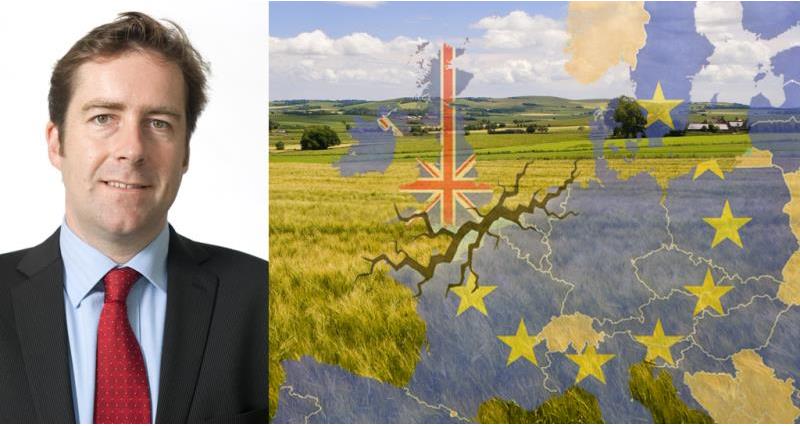He writes:
A key issue of the referendum outcome is what our trading relationship with Europe would be when we leave the EU. I know a bit about international trade and the challenges of trading with European countries when you’re outside the EU, gleaned from five years working for the US Department of Agriculture.
In that time I spoke to lots of American companies that were enthusiastic about sending their food and drink products east across the Atlantic and accessing the EU market. After all, how hard can it be? Find a customer, agree a price, and load a shipping container. But when you’re dealing with trade across international boundaries things are never that straightforward. There were two main hurdles that many encountered, tariff barriers and SPS – and catchy acronym for sanitary and phytosanitary issues.
More...
- More from Phil - the principles behind our historic EU consultation
- NFU launches biggest farming conversation for a generation
- Our biggest ever membership consultation - update
- Unions' shared ambition for UK farming
- Farming and the EU: Our hub pages for the latest news and policy analysis
Successive trade reforms have reduced tariffs but they are still a common trade policy tool. This is particularly true where countries have policies to support their farming sector. In short, if you’re spending money to support your agricultural industry there’s a strong logic to using tariffs to keep out low-priced products.
Suffice to say, I got to know the tariff codes and rates for products entering the EU pretty quickly. The tariff system is not just about adding a percentage to the price of a product. For foods that have dairy or sugar as ingredients there are additional charges to pay. For some fresh produce products the mechanism flexes through the year to offer protection that coincides with the seasonality of production. I soon learnt that if you’re outside the EU and are looking to sell a product that is produced in Europe, chances were that the tariff structure would kill the chance of the competing on price.
Take cheese as an example (albeit, a mainly hypothetical one). Even if all the health certification issues for dairy were met, a customs duty approaching £2,000 per tonne means it would come onto the European market at a hefty premium. Tariff and customs duties will matter when it comes to the UK’s trading relationship with the EU.
SPS issues were the other hurdle, particularly for products like meat and dairy. Some American practices like using growth hormones and the chlorine-washing of chicken effectively closed the door to products from those systems entering the EU from America. But even those that didn’t still faced barriers. For example, products would have to come from approved slaughterhouses and cutting plants; dairy products would need to be accompanied by health certificates issued by government and checked at the port of entry. And where you’ve got site approval processes and certification, you’ve inevitably got checks on those methods. Not forgetting that certification systems invariably mean a degree of paperwork, additional costs and complexity. These aren’t insurmountable problems but can be a deterrent to businesses.
Renegotiating trade access to the EU is a priority when it comes to our future relationship with Europe. At the same time, there’s the issue of the 53 trade deals that are currently in place for the EU. There are plenty of questions around trade, and getting the right framework for UK agriculture will be integral to the agri-food sector’s future success.
